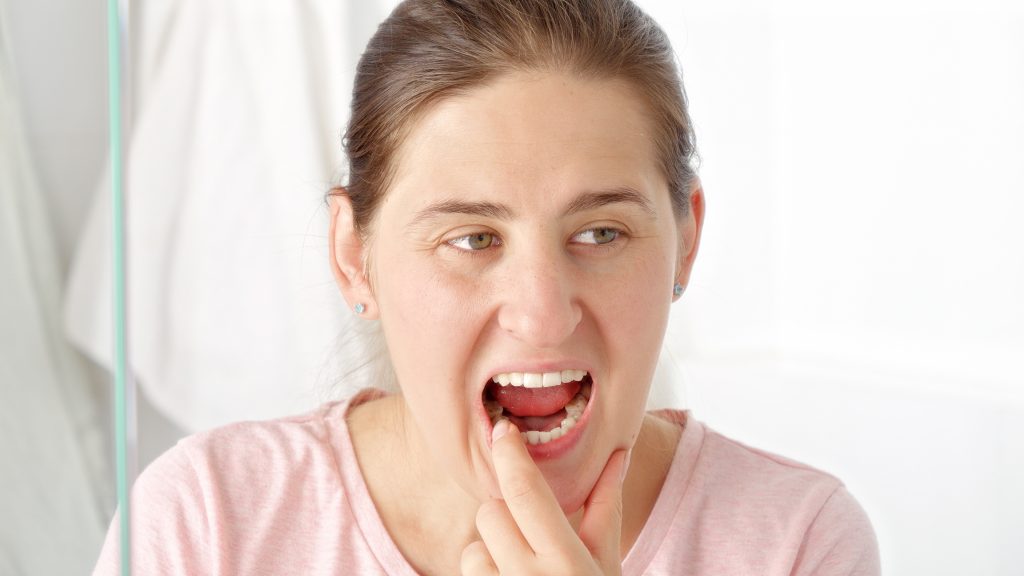Teeth grinding, or bruxism, is a common yet often unnoticed issue that can significantly impact oral health and overall well-being. Many people remain unaware of their teeth-clenching habits until they experience jaw pain, headaches, or dental damage. While bruxism is typically seen as a dental concern, its root cause may be more complex. Research suggests a strong connection between stress and teeth grinding, indicating that mental health plays a crucial role. Dentists in Shellharbour are exploring this link, offering valuable insights into managing both stress and oral health. Understanding this relationship could help individuals take proactive steps towards better dental care and overall wellness.
What is Teeth Grinding?
Teeth grinding, or bruxism, is an involuntary habit that can occur during sleep or while awake, often leading to dental issues if left untreated. Stress is a major trigger, as anxiety and emotional strain can manifest physically through clenching and grinding. Other contributing factors include sleep disorders like sleep apnoea, excessive caffeine or alcohol intake, misaligned teeth, and nutritional deficiencies, particularly in magnesium and calcium. Bruxism affects a significant portion of the population, ranging from occasional cases to chronic conditions that cause serious dental damage. Early awareness and intervention are crucial in preventing long-term complications and maintaining oral health.
How Stress and Anxiety Cause Teeth Grinding (Bruxism)
Stress is one of the leading causes of teeth grinding. When we experience high levels of stress or anxiety, our body often reacts in ways we might not notice. For some, this includes tensing their jaw muscles and unconsciously grinding their teeth. Several studies indicate that psychological stress, anxiety, and sleep disorders are strongly linked to bruxism.
How Stress Triggers Teeth Grinding
- Increased Muscle Tension – When stressed, the body remains in a heightened state of alertness, often causing jaw muscles to tighten, leading to grinding.
- Sleep Disruptions – Stress can interfere with sleep quality, increasing the likelihood of sleep bruxism.
- Involuntary Coping Mechanism – Many people unconsciously grind their teeth as a way to release pent-up frustration, anger, or anxiety.
- Hormonal and Neurological Effects – Stress triggers hormonal changes, increasing the likelihood of teeth clenching and grinding as a subconscious reaction.
- ADHD and OCD Links – Some studies suggest that individuals with ADHD or OCD may be more prone to bruxism due to hyperactivity or compulsive behaviours.
Why Have I Suddenly Started Grinding My Teeth?
Bruxism can develop suddenly due to various triggers, including:
- Increased Stress or Anxiety – Emotional strain can lead to new teeth-grinding habits.
- Changes in Medication – Certain antidepressants and SSRIs can contribute to bruxism.
- Nutritional Deficiencies – Low magnesium levels have been linked to muscle tension and grinding.
- Sleep Disorders – If you’ve recently developed sleep apnoea or disturbances, this may be causing bruxism.
- Dental Misalignment – A sudden change in your bite or jaw structure may result in involuntary grinding.
Signs and Symptoms of Teeth Grinding
Recognising the signs of stress-induced bruxism is crucial for early intervention. If you experience any of the following symptoms, dentists in Shellharbour recommend consulting a dental professional:
- Worn-down teeth – Flattened, chipped, or fractured teeth
- Jaw pain and tightness – Soreness around the jaw, especially in the morning
- Frequent headaches – Especially tension headaches originating from the temples
- Tooth sensitivity – Increased sensitivity to hot or cold foods
- Earaches – Without an actual ear infection
- Clicking or popping jaw sounds – A sign of temporomandibular joint disorder (TMJ)
- Disturbed sleep – Grinding noises that may disturb your partner
- Tingling or numbness in the face – Often a sign of jaw muscle fatigue
Long-Term Effects of Untreated Teeth Grinding
Untreated teeth grinding can lead to severe dental damage, including enamel loss, tooth sensitivity, and even fractures. It also contributes to jaw issues like TMJ disorders, causing pain, muscle fatigue, and joint problems. Beyond dental health, chronic bruxism can disrupt sleep, increase stress, and lower overall quality of life. Addressing bruxism early is crucial to preventing long-term complications and maintaining both oral and overall well-being.

Best Treatments for Teeth Grinding (Bruxism) Due to Stress
Managing stress-induced teeth grinding requires a combination of relaxation techniques, dental care, and lifestyle changes. Here are some effective ways to prevent and reduce bruxism:
- Mindfulness Practices – Meditation, deep breathing, and yoga can help lower stress levels.
- Jaw Relaxation Exercises – Techniques such as gentle jaw stretches and massage can relieve tension.
- Custom-Fitted Mouthguards – These prevent further dental damage and relieve jaw discomfort.
- Dietary Adjustments – Increasing magnesium and calcium intake may help with muscle relaxation.
- Limiting Caffeine and Alcohol – Especially before bedtime, as these can worsen bruxism.
- Improving Sleep Hygiene – A calming nighttime routine reduces stress and improves sleep quality.
By adopting these strategies and visiting your dentist in Shellharbour regularly, you can effectively manage teeth grinding and safeguard your oral health.
What Can Dentists Do for Teeth Grinding?
Dentists play a crucial role in managing and treating bruxism. Some of the most common solutions they provide include:
- Custom Night Guards – Prevents damage and reduces pressure on teeth.
- Bite Correction Treatments – Adjustments to fix misalignment issues.
- Botox for Bruxism – In severe cases, Botox injections can relax jaw muscles and reduce grinding.
- Behavioural Therapy Referrals – Addressing the psychological aspects of bruxism.
When to See a Dentist in Shellharbour
Recognising when to see a dentist is key to managing teeth grinding effectively. If you’re experiencing ongoing jaw pain, tooth sensitivity, or visible wear, it’s important to seek a professional assessment. Frequent headaches or earaches may also be signs of bruxism, making early intervention crucial to prevent long-term damage. At our Shellharbour dental clinic, we offer personalised treatment options to protect your teeth and improve your oral health. With the right care, including stress management strategies and custom dental solutions, you can reduce grinding and enjoy a healthier, pain-free smile.
Conclusion
Understanding the connection between stress and teeth grinding allows you to take proactive steps in protecting your oral health. Recognising the early signs of bruxism can help prevent serious dental issues such as enamel wear, jaw pain, and sleep disturbances.
At our Shellharbour dental clinic, we encourage a holistic approach that combines stress management techniques with professional dental care. Custom treatments like mouthguards and bite adjustments can help minimise damage and relieve discomfort. Regular dental check-ups ensure that any underlying concerns are addressed before they lead to long-term complications. By managing stress and prioritising your oral health, you can enjoy a healthier, pain-free smile for years to come.
Book a consultation with a Shellharbour dentists today to prevent dental damage from bruxism and improve your well-being.


